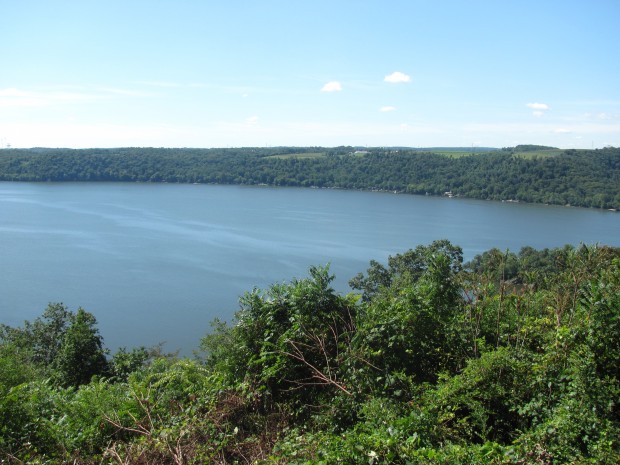Report: drilling didn't strain water supply in Susquehanna River Basin

Scott LaMar / WITF
The Susquehanna River Basin Commission says the surge in gas drilling has not adversely affected the water supply in the basin.
The surge in gas drilling has not put a major strain on water supply in the Susquehanna River Basin, according to a new report from the regulatory body that oversees water withdrawals.
The Susquehanna River Basin Commission (SRBC) is charged with regulating water quantity, not quality. However last year the commission issued a report saying it hadn’t found any correlation between Marcellus Shale development and watershed impairment— although it began the monitoring after the boom took off.
In this new report the SRBC says generally speaking, “the basin’s water resources are sufficient in magnitude to accommodate the water demands of the industry concurrently with other water users.”
The report analyzes the time period between July 2008 and December 2013 and found the industry consumed 9.76 billion gallons of surface water and purchased another 1.97 billion gallons from public drinking water supplies.
However the report says the real challenge has not been balancing the needs of the gas industry with other human needs, but rather balancing the industry’s uses with, “the natural aquatic ecosystems existing within the basin–especially the small, lower-yielding watersheds in which the industry has been active.” The SRBC says it has been successful at managing that issue.
The report says drillers have generally been compliant with regulations, but that some of the subcontractors and third-party entities employed by gas companies have posed enforcement challenges. In the five years covered by the report, the commission reached 21 settlement agreements with natural gas operators, amounting to about $2.3 million in fines.
Note: this story has been updated to correct the total number of gallons consumed by the industry.
















